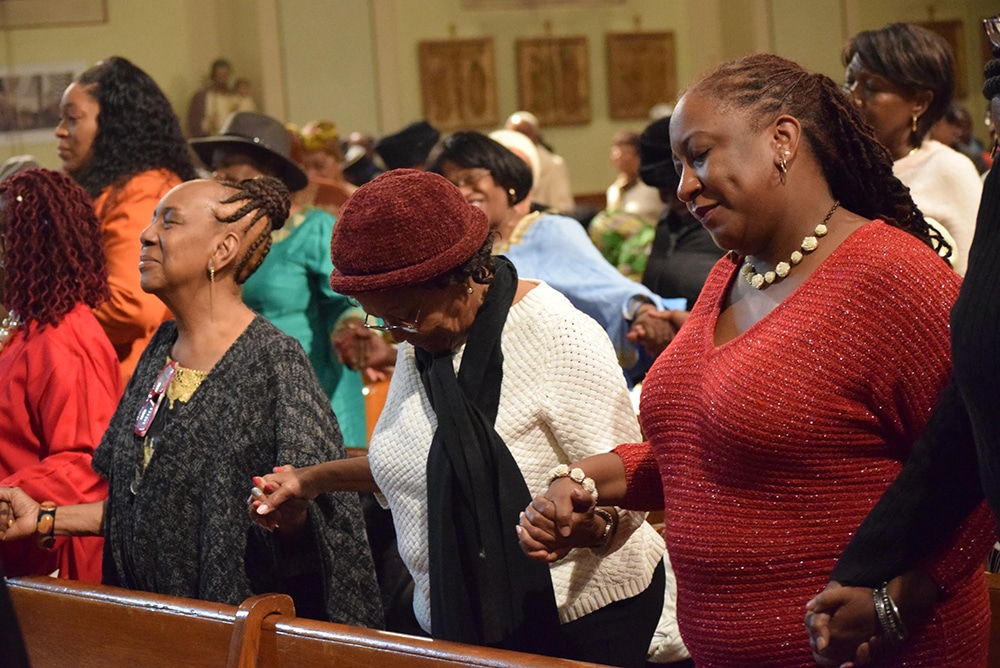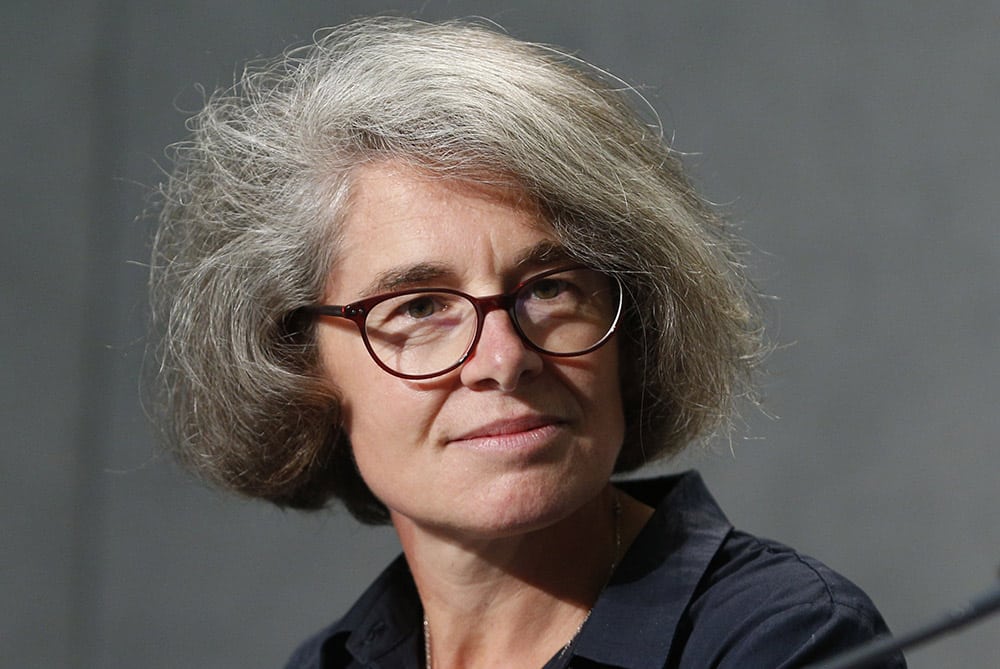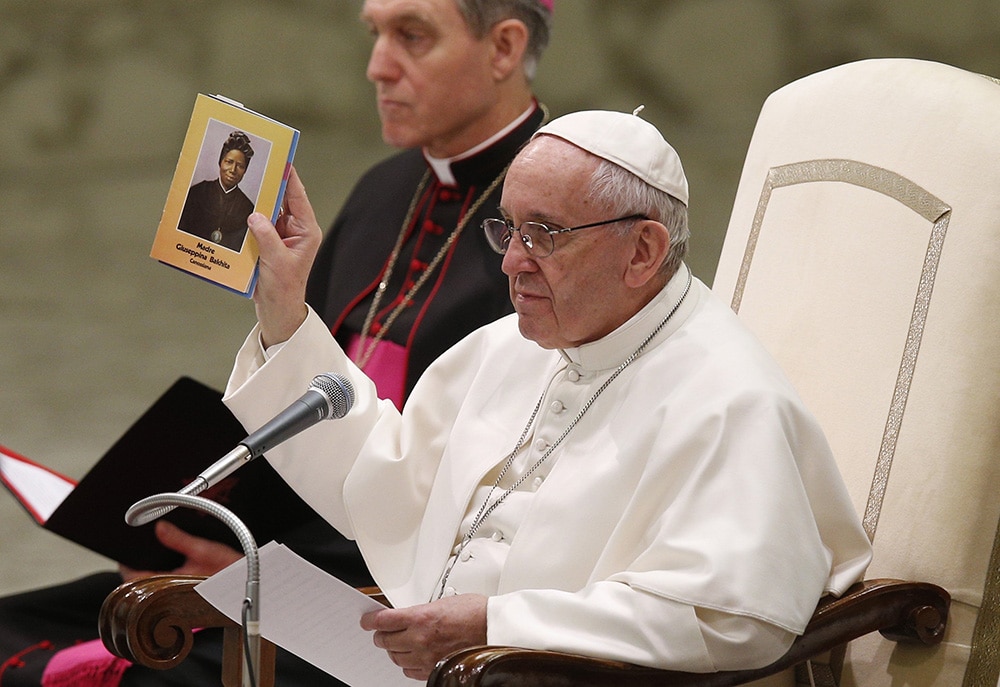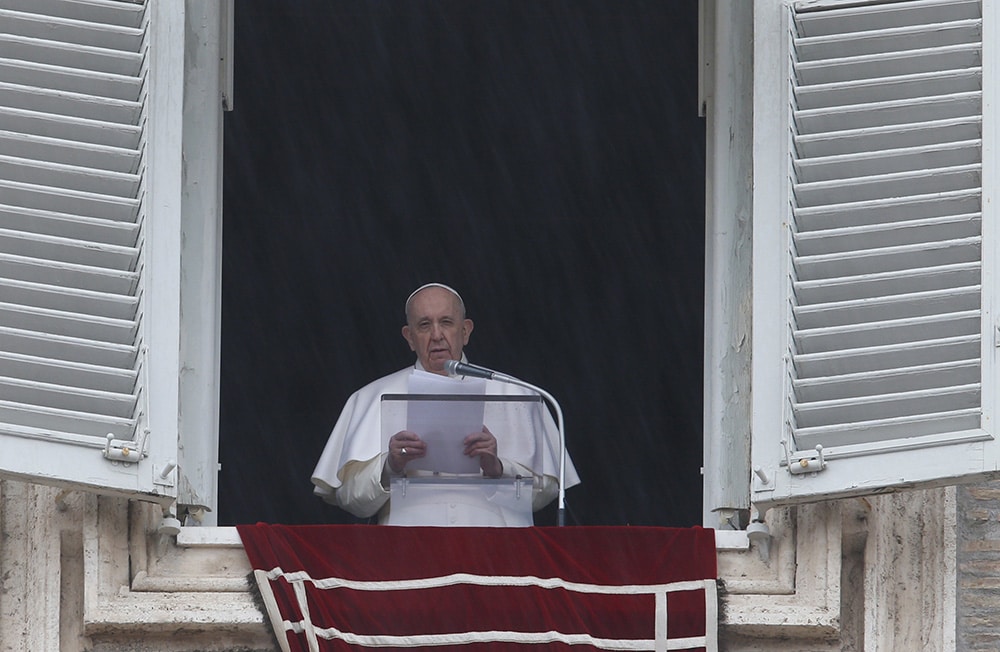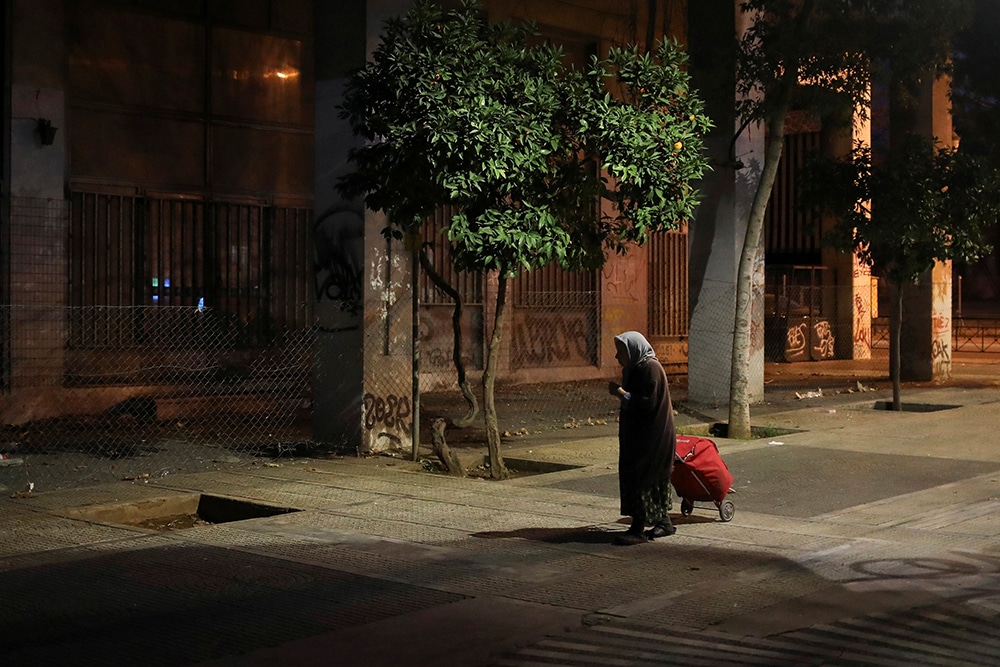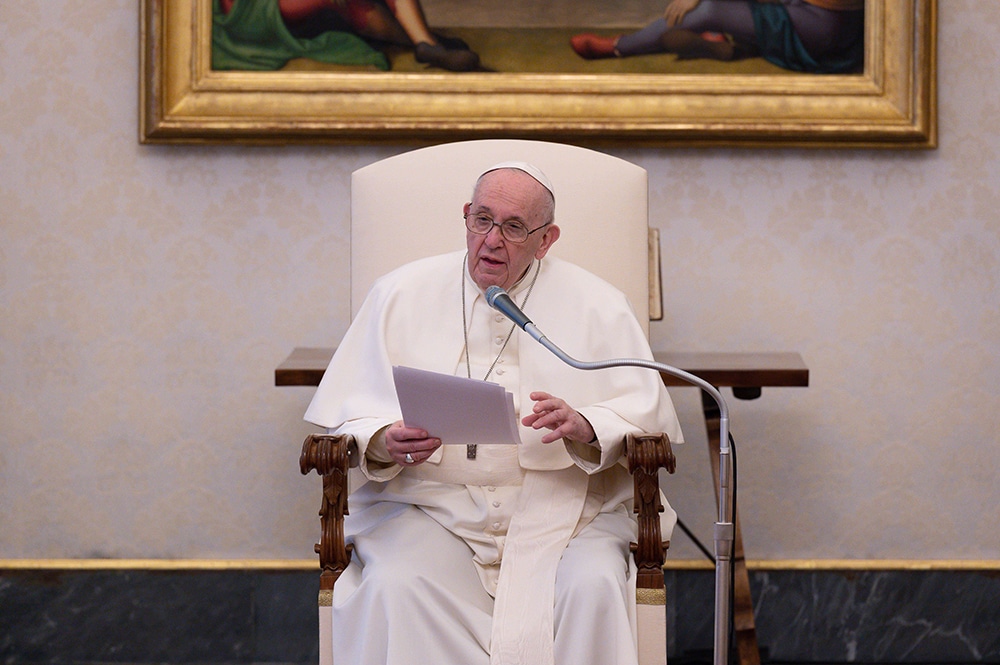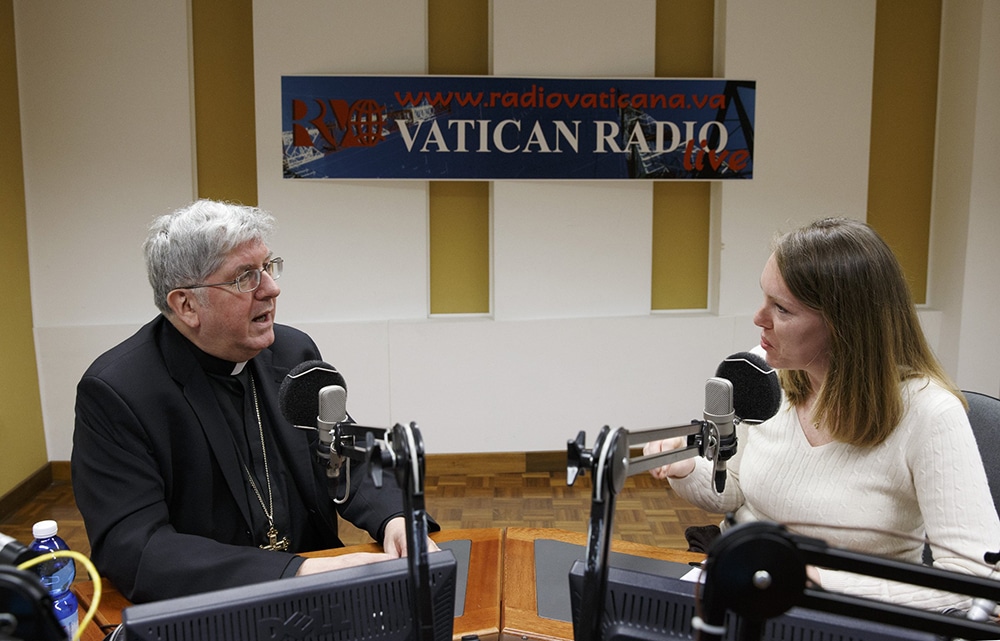It must have been around 2004, and I was at my banking job helping one of our regulars who happened to be a religious sister. Her ministry-related transactions always took a long time, and so we tended to chat. Although I was Baptist, I had graduated from a Catholic university and sang in a Latin liturgical choir, so I had a level of comfort chatting with her about her faith.
One day, most likely because she could hear in me an attraction to, and growing love for the Church, she said to me, “Maybe you should become Catholic!”
I quickly responded, “No! Y’all don’t have enough Black people!”
What I meant was Black Americans, and she knew exactly what I meant. We turned that moment into a moment of laughter, but I wasn’t joking.
I have lived almost the majority of my life in predominantly white settings, and have experienced minimal overt racism. I think those two truths are part of the reason that I have remained mostly quiet over the past year as the storm of race conversations ensued. Perhaps I struggled with guilt.
I think I felt somewhat of a fraud, because in many ways, due to tremendous sacrifices that others have made for me, I did not have to suffer the brunt of individual or systemic racism. There is also much about the assertions of the most “woke” among us, which I simply do not support, and honestly find quite spiritually and intellectually broken. I also hesitated because I was worried that when the sensation died down, conversations about race would cease to be seen as important; I didn’t want to be exploited for sensation.
Today, I understand more clearly that Black Catholics need to tell their stories — wherever and whenever we can.
Multicultural background
As mentioned, I had grown up in a predominantly white neighborhood, attended a predominantly white school, was in predominantly white classes, which were the honors and advanced placement classes. I was teased and occasionally bullied by my fellow Black students for “wanting to be white” mainly because I was in honors classes, because they didn’t like my “proper” way of speaking and because I had too many white friends.
I had graduated from a predominantly white college. The only place I went where I was not in the minority was church.
Eventually, a desire and love for the Eucharist took precedence over my desire to go to church with people who looked like me and shared cultural similarities with me. Soon after I became Catholic, a friend of mine who was sensitive to the deep connection between my race and my experience of religion told me about an almost all-Black American Catholic church in the local area.
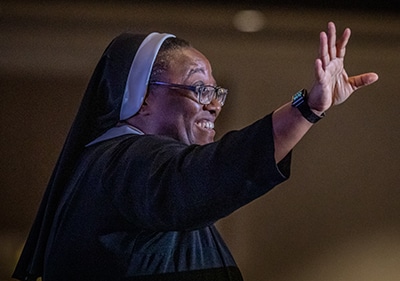
He recommended I check it out, and one Sunday, I decided to follow through on the recommendation. It was glorious. Gospel music, wonderful preaching, not being looked at like a crazy person for the response of an “Amen” or a “Yes, Lord” during the homily. It was glorious!
But somehow, I knew that it was not my call to hunker down into the comfort of that parish. See, one of the reasons I had started to fall in love with the Church was that in the celebration of the Mass, in the Eucharist, all Catholic churches were home.
I was raised in a multicultural home, being adopted by my uncle, a Black American man, and my aunt, a Caribbean woman from Dominica. I had watched from the lofted balcony as they would throw parties, forcing their culturally different worlds to collide. I had watched time and time again as the night began with separation between the Americans and the Dominicans. I had watched as, at the beginning of the night, the Dominicans would sit down for the classic R&B songs and the Americans would sit down for the classic reggae and calypso music. I had watched as the minutes passed, and the joy spread; I had watched as, by the end of the night, no one was sitting, everyone just danced and enjoyed one another; and through the love of my aunt and uncle, somehow these culturally different people found common ground.
East Texas ministry
I live in east Texas. The south in general is often seen as a place with a higher prevalence of racism, with Texas having a deep and painful history of participation in that. East Texas is perceived by some as having an even higher prevalence than the state overall.
When I found out that I was transferring to east Texas for ministry, I was only excited. Race did not cross my mind; that was short-lived. As I shared the news of the transfer with family and friends, I was sobered back into the reality of my skin color and the reputation of the eastern part of my state. My family expressed serious concerns, a dear friend of the sisters who had lived in east Texas thought it was not a good idea and expressed sincere concern for my safety. Of course, I pressed on, knowing that I could not live in pervasive fear.
There has been one ongoing theme here in east Texas that was a surprise, and has been a joy, and makes it clear to me that Black Catholics have a task in actively participating in healing the impacts of sin and suffering related to race.
It began during my first stop at a small local grocery store and restaurant. My sister and I were checking out, and I saw a young Black woman look from the kitchen doorway at me and do a sort of double-take, and then disappear back into the kitchen. She reappeared in the doorway with another co-worker, also a Black woman, both looking at me, and then both disappeared into the kitchen, only to reappear again with more Black co-workers.
The small group approached together and began exclaiming that they had never seen a Black nun. They were further amazed that I was an American, like them. They were delighted. They had questions. They didn’t even realize it was possible to be both Black and a nun. It was a joy-filled encounter. There have been several more like it during the last few years in east Texas.
Seeing something good
Black people here in east Texas, particularly Black Americans, are overjoyed at the sight of someone who is both Black and a religious sister. They are mostly non-Catholics, but this does not stop them from seeing something good in a Black sister.
My community of sisters has been ministering here since 1937, so they are known in this community to Catholics and non-Catholics because of their devotion primarily to hospital ministry. It is dawning on me, with each of these joyful encounters, that Blacks in this community had isolated the life of the sisters, and the identity of the sisters to a white life — a white identity — because there has never been a Black sister of the Holy Family of Nazareth living and serving in Tyler, Texas. It seems like, to Blacks in this community, the good they saw in their Mother Frances Hospital sisters was a good that could not be coupled with skin like theirs. Because I simply showed up here, that lie is now in the trash.
That we may be one
I am convinced in the hope that Jesus has that we may be one. I am convinced that for us, for God’s people, the hope of the new heaven and the new earth, what the Catechism of the Catholic Church calls “this consummation” is the “final realization of the unity of the human race” (No. 1045). We know that the wounds and sins of the world easily infiltrate the institutional Church. The last few years have brought that truth to the forefront. This holds for issues of race relations and racism.
Being a Black Catholic isn’t a special class or something that should have precedence over Catholics of other racial and ethnic descents. But, because of our history as Blacks, we need to tell these stories so that the whole story is complete and has a voice in the places where there was not previously a voice. It is a part of participating in the hope of Jesus that we may be one.
We are each called to do that in our own way, and a key to unlocking the discernment on how we are each called to participate, I think, also lies in the treasure and talent of our stories. But we have to look at them in hope, no matter how painful. For me, I will strive to be like my aunt and uncle: a bridge, and hopefully a sign of hope.
Sister Josephine Garrett is a native Texan. She joined the Catholic Church in 2005 and professed vows in 2020 as a Sister of the Holy Family of Nazareth. Visit osvtalks.com/garrett to view her discussion on Daily Bread Discernment.

